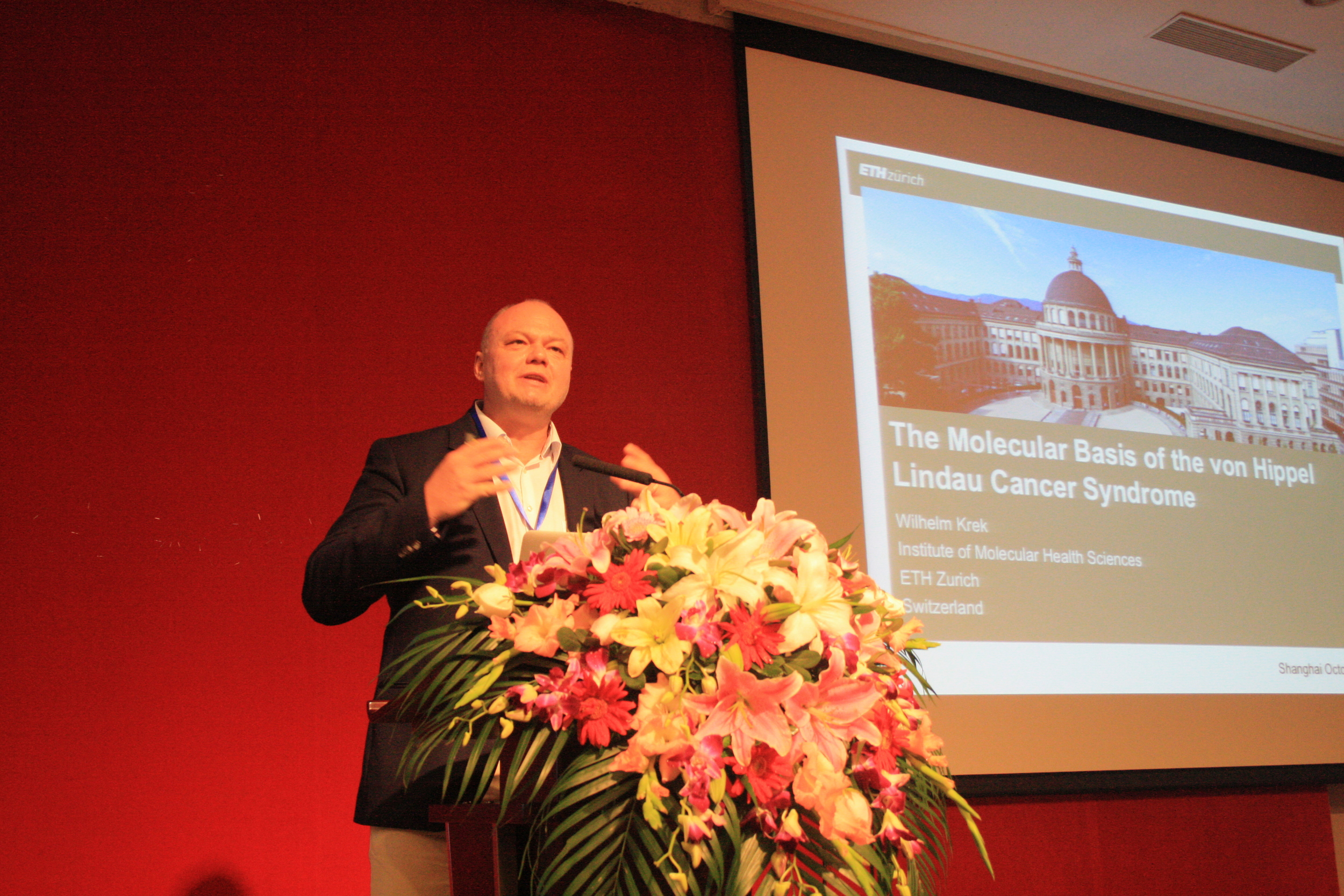After the PUHSC-SSSTC Joint Stepping Stone Symposium on Cancer and Neuroscience in Beijing, the Swiss experts of Cancer and Neuroscience continued their trip to Shanghai to attend the following symposium together with Shanghai Jiao Tong University School of Medicine (SJTUSM) and Shanghai Institute of Neuroscience (IoN), Chinese Academy of Sciences.
The symposia is fully attended.
ETH Dr. Maio Su Chen, program manager of Sino Swiss Science and Technology Program
Dr. Maio Su Chen, the program manager of SSSTC (Sino Swiss Science and Technology Program), gave an opening speech at the beginning. Dr. Chen stressed the importance to enhance the academic exchange and scientific collaboration between the Chinese and Swiss researchers and the support from the Swiss and Chinese government to bring the collaboration to the next level.
Prof. Wilhelm Krek from ETH Zurich opened the lecture session by presenting his current research on cancer research. The lecture session was fully attended by over 300 students and researchers from SJTUSM and IoN. After the lecture session, plenary sessions about cancer research and brain disorders were held in parallel to address current research in the specific areas.
Prof. Wilhelm Krek expressed his excitement about this symposium. He said that SSSTC symposium is a fantastic program which brings two innovation-driven countries together to establish collaborations at high level. During this symposium he discovered interesting interface between different disciplines. Prof. Krek also mentioned that China offers a great environment for international collaborations in terms of scientific base. The huge scientific base In China provides great opportunities for both China and Switzerland in both fundamental research and applied science.
Prof. Wilhelm Krek, ETH Zurich
Q&A session
Prof. Ruibao Ren, one of the key note speaker from SJTUSM highly appraised the structure of this symposium which brings together researchers from both cancer and Brain disorder, from both China and Switzerland. He stressed that collaboration is highly important in this area of cancer study. His current international collaboration is mainly between the States and China. But he considered Switzerland as a promising partner country to establish further collaboration due to the high achievement of Swiss scientists in the area. He also added that this kind of symposia is the best way to connect people with each other and he has already fund some potential Swiss collaboration partners during the symposium.
Group photo of all guests attended the symposia
Poster evaluation
The two-day symposium was closed with a round table discussion with the Swiss delegation and the Chinese speakers to talk about the further steps and means to establish Sino-Swiss collaboration in this area. Prof. Guoqiang Chen from SJTUSM summarized the essential to establish an effective scientific collaboration with a “RICE” concept: Resource, Incubation, Common interest, Education.






